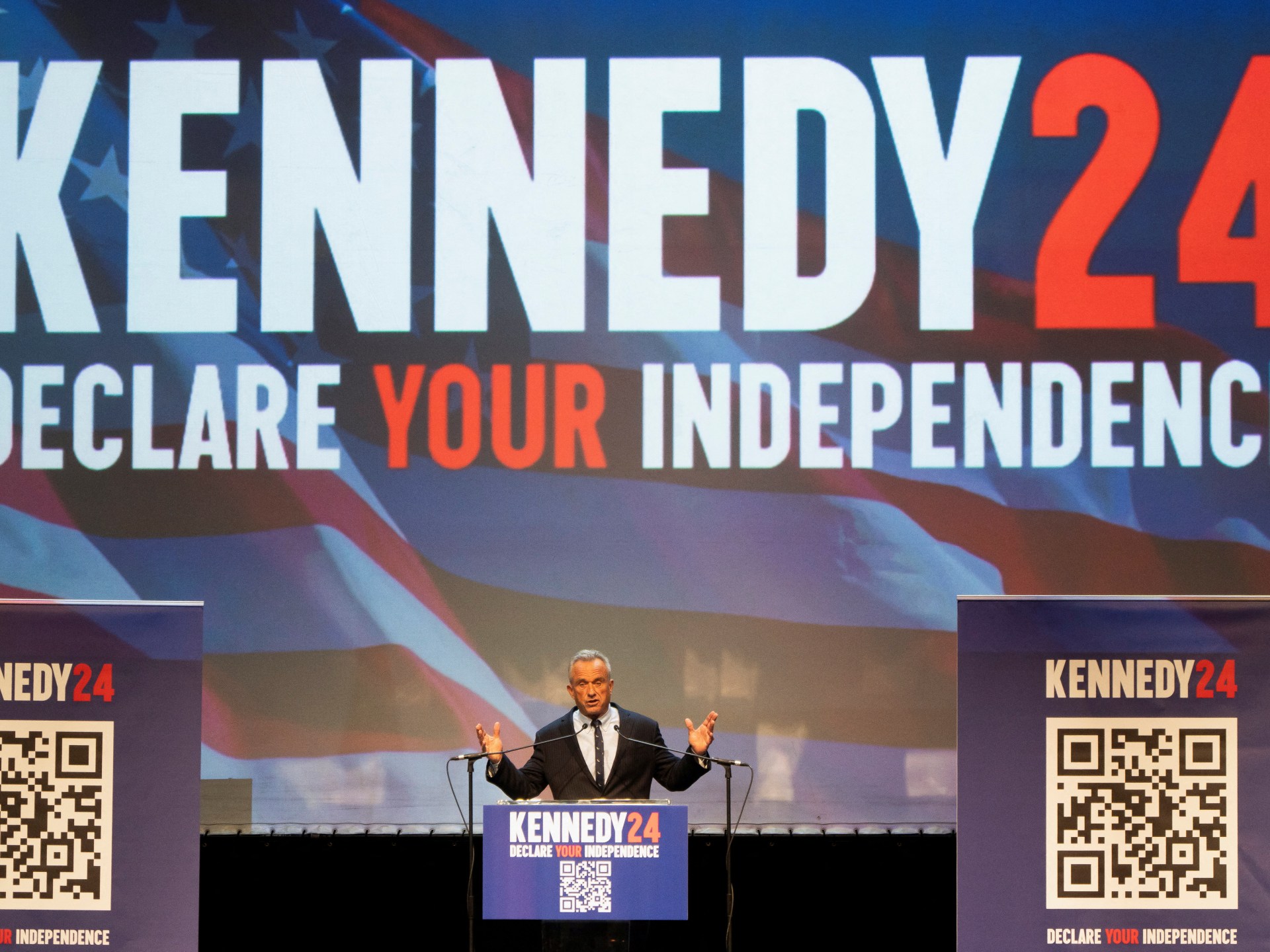Robert F. Kennedy Jr., the most prominent candidate from outside the Democratic and Republican poles (Reuters)
Americans have not elected an independent president since George Washington, but the public, tired of unpopular presidents, appears more open than ever to seriously consider the names of independent candidates who could influence this year's elections.
Multiple opinion polls have shown that voters do not want a rematch between President Joe Biden and Donald Trump, and that they are willing to evaluate many politicians who intend to run independent campaigns or campaigns for parties far from the Democratic and Republican poles.
Analysts believe that none of the independent candidates has a great chance of entering the White House next November, but the percentage of their votes could influence one way or another in the upcoming elections.
Democrats in particular fear the potential negative impact of independent candidates, similar to what happened in the 2016 elections when the votes of Jill Stein, the Green Party candidate, caused Hillary Clinton to lose.
Independent candidates for the presidency of America
Among the independent candidates seeking to upend the binary system is the racial justice activist Cornel West, along with Robert F. Kennedy Jr., the name-brand candidate who represents the biggest threat to the status quo.
Douglas MacKinnon, a political advisor and assistant in the White House during President Ronald Reagan's term, believes that John Kennedy's nephew makes the 2024 elections a real race between three people, and attracts a large number of critics who did not cast their votes for Trump in 2016.
McKinnon wrote in an opinion article published by The Hill newspaper that Kennedy's words and warnings attract the attention of young voters in the United States, to the point that he now leads ahead of both Biden and Trump in this age group.
Biden and Trump have already begun to draw lines of conflict, although recent polls, conducted by the NORC Center for Research in Public Affairs and the University of Massachusetts Amherst, showed that more than half of voters are unhappy with the replay of 2020.
Biden and Trump are actually tied in the Real Clear Politics poll averages, but when Kennedy is added into the mix, he gets 17%, giving Trump a 5 percentage point lead.
On the other hand, Kyle Kondik, a political analyst at the University of Virginia, warned that polls often exaggerate support for independents, who start out with high ambitions before they fail.
But he noted that polls that include all potential non-polar candidates usually show Biden hurting slightly more than Trump.
Right-wing political activist Charlie Culian said that Kennedy poses a legitimate threat to Biden, because he focuses on issues that matter to millennial voters and Generation Z voters.
He added that focusing on issues such as government transparency, fiscal responsibility, and increasing economic opportunity increases the chances of candidates winning elections across the United States.
Kennedy, Stein and West are likely to join several other candidates, including nationalist and anti-Trump Rep. Liz Cheney.
Meanwhile, the centrist group No Labels is creating a “unity ticket” to launch if the two parties choose “unreasonably divisive presidential nominees,” which Democrats have criticized as a boost to Trump.
The difficulty for candidates operating outside the two-party system, Kondik says, is finding the money and resources to make it to the final slate of candidates, let alone win. But the outcome of an independent candidate in a few close, decisive battles could affect the election results.
It is noteworthy that Stein won only 1% of the vote in 2016, but her share in several swing states was greater than the difference in Trump’s victory over Clinton.
A Senate report found that Moscow supported social media campaigns that promoted Stein, prompting Clinton to call her a "Russian tool."
Source: Agencies

